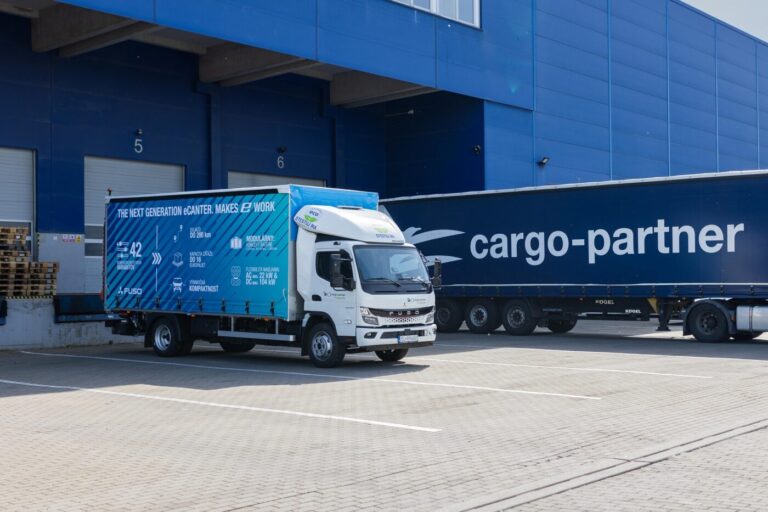According to the company, it has already completed its first tests in Austria and Slovakia and plans to expand to other countries in Central and Eastern Europe. The small—to medium-sized electric trucks will initially cover shorter distances. Cargo-Partner speaks of “first—and last-mile pickups and deliveries.” Thomas Schledorn, Chief Operating Officer Overland at Cargo-Partner, emphasises that his company is committed to driving sustainable innovation in the logistics industry.
In Austria, the company initiated the tests with a Mercedes-Benz eActros 300 at the end of March, and in Slovakia, with a Fuso eCanter in mid-April. The eActros travelled around the Austrian cargo partner hub near Vienna Airport. The electric truck transported an average of around 5.5 tonnes of freight per day. The logistics company describes a trip to the nearby city of St. Pölten as a particular highlight: “Throughout the trip, the truck delivered cargo with a total payload of 6.9 tons, completing all customer stops over a total distance of 264 km. With an average energy consumption of only 1 kWh/km, the truck proved highly energy-efficient, as the board computer showed a remaining capacity of 38% or 166 km at the end of the day.”
In Slovakia, Cargo-Partner tested the Fuso eCanter with a payload of 3.1 tonnes and a range of up to 200 kilometres for a fortnight. The tests mainly involved daily journeys within the Bratislava urban area. However, the company also sent the model on test drives between its hub in Bratislava and a warehouse in Dunajska Streda, as well as from Bratislava to Vienna, Fischamend and back. With an average consumption of 1 kWh/km, the energy efficiency is at the same level as during the test drives in Austria, summarises Cargo-Partner.
For the next step, “Cargo-Partner aims to deploy e-trucks on a daily basis in cooperation with selected and trusted core carriers” and develop charging infrastructure at its hubs. Cargo-Partner describes itself as a full-service logistics provider with a broad portfolio of air, sea, land transport, and logistics services and particular strengths in information technology and supply chain optimisation. According to the company, it employs 4,000 people and has 160 branches in 40 countries.


